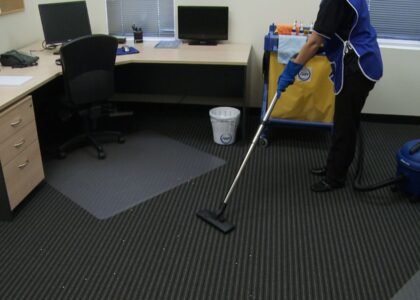In today’s market, accuracy is very important, especially when it comes to weight and measurements. Whether it’s a shop selling packed goods or a manufacturer producing weighing machines, making sure the quantity is right builds trust.
This is where Legal Metrology Certification comes in. It ensures that weighing and measuring instruments meet the rules and provide correct readings.
In this blog, we will explain what legal metrology means, why certification is important, and how to get the required licenses and certificates in India.
What is Legal Metrology?
Legal Metrology is a part of the law that deals with weights, measures, and instruments used for weighing and measuring. It helps in protecting consumers from fraud and ensures fair trade practices.
For example, if you buy 1 kg of sugar from a store, you expect it to be exactly 1 kg. Legal metrology rules make sure the weighing machine is not faulty and gives the correct weight. This is why any weighing or measuring instrument used in trade must be certified under the Legal Metrology Act, 2009.
Why Legal Metrology Certification is Important
- Consumer Protection – Ensures that customers are not cheated by faulty machines.
- Business Compliance – Helps businesses follow the law and avoid penalties.
- Trust and Credibility – Certified instruments improve trust between buyers and sellers.
- Market Access – Many states in India require certification before allowing sale or use of instruments.
Types of Legal Metrology Certificates
Let’s look at the common certificates and licenses under legal metrology:
1. Legal Metrology Certificate Registration
This is a general term that includes all kinds of certifications under legal metrology. Any person or company involved in manufacturing, importing, or selling weighing and measuring devices must go through this registration.
Legal metrology certificate registration is required for:
- Manufacturers
- Importers
- Dealers
- Repairers
2. Legal Metrology Manufacturing License
If you are a manufacturer of weighing or measuring instruments like weighing scales, petrol dispensers, or meters, you need to get a Legal Metrology Manufacturing License. This license proves that your manufacturing process follows legal metrology rules and that the instruments are properly calibrated.
Steps to get the license:
- Fill out the application form provided by the Controller of Legal Metrology.
- Submit required documents like proof of business, manufacturing setup, technical staff details, etc.
- Pay the applicable government fee.
- The department will inspect your unit and issue the license if all is found correct.
3. LMPC Certificate Registration
LMPC stands for Legal Metrology Packaged Commodities. If your product is sold in a pre-packed form (like packaged snacks, bottled liquids, boxes, etc.), then you must apply for LMPC Certificate Registration.
According to the rules, every packaged product must have proper labeling which includes:
- Name and address of the manufacturer/importer
- Net quantity (weight, volume, number)
- MRP (Maximum Retail Price)
- Date of manufacture
- Customer care details
Importers must get this certificate from the Director of Legal Metrology, especially when importing goods from other countries.
Not having this certificate can lead to heavy fines or seizure of goods.
4. Weight and Measurement Certificate Registration
This certificate is required for anyone who uses a weighing or measuring instrument in trade. It certifies that the instrument is tested and approved by the legal metrology department.
Steps involved:
- Apply to the local Legal Metrology office.
- Submit documents like identity proof, instrument details, and business registration.
- The department will verify and stamp the instrument if it meets the standards.
This certificate usually needs to be renewed annually.
Documents Required for Legal Metrology Certification
While the documents may vary slightly depending on the state and the type of certificate, some common documents include:
- PAN card and Aadhaar card of the applicant
- Proof of business address (electricity bill, rent agreement, etc.)
- Business registration documents (Partnership deed, Certificate of Incorporation, GST)
- Product details and specifications
- Factory or shop layout plan (for manufacturers)
- NOC from pollution control board (for manufacturers)
- List of machinery and tools
- Declaration form
Penalty for Not Having Certification
If any person or company uses weighing or measuring instruments without proper certification, they may face:
- Heavy fines
- Confiscation of goods or machines
- Cancellation of license
- Legal action
To avoid these issues, it’s always better to apply for the right certification on time.
Conclusion
Legal Metrology Certification is not just a formality—it plays a big role in building trust between sellers and buyers. It ensures fair trade and protects the interests of everyone involved. Whether you are a manufacturer, importer, or dealer, having valid legal metrology certificate registration, legal metrology manufacturing license, LMPC certificate registration, and weight and measurement certificate registration is a must.
Getting certified may seem like a lengthy process, but it’s worth it in the long run. It keeps your business legal, builds your reputation, and opens doors to more business opportunities.
If you need help with legal metrology certification or want to know how to apply, feel free to contact professionals who specialize in registration and compliance services. They can make the process easier and faster.
Source: https://hasster.com/blogs/76270/Legal-Metrology-Certification-for-Weighing-and-Measuring-Instruments






